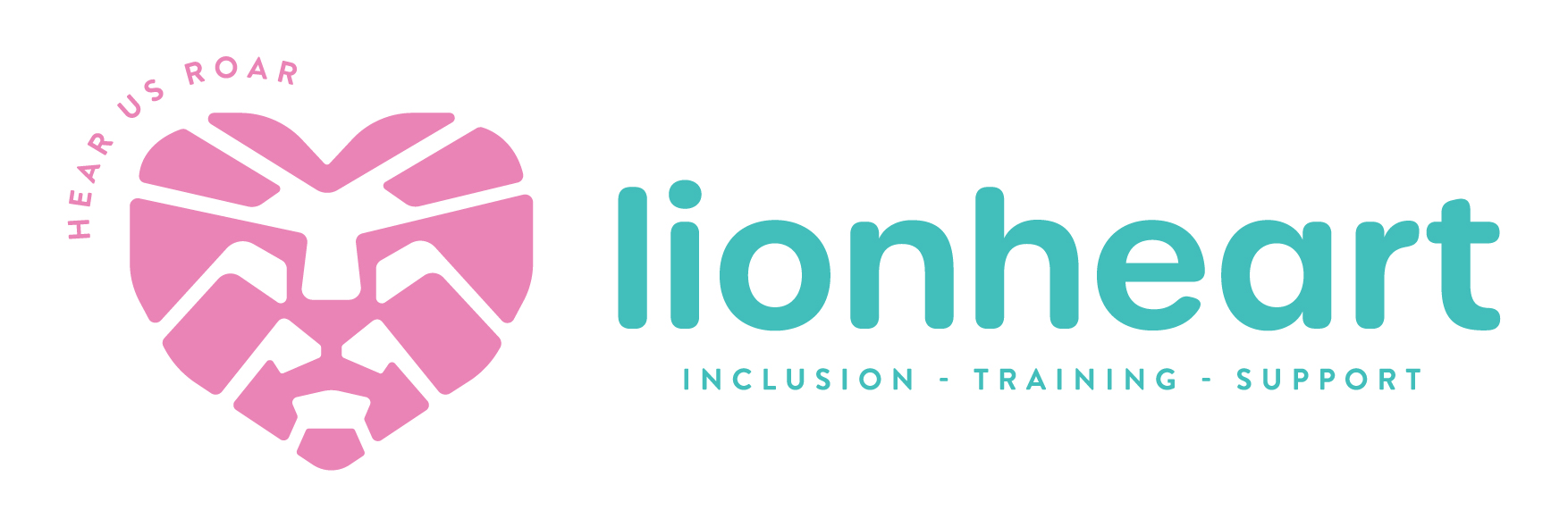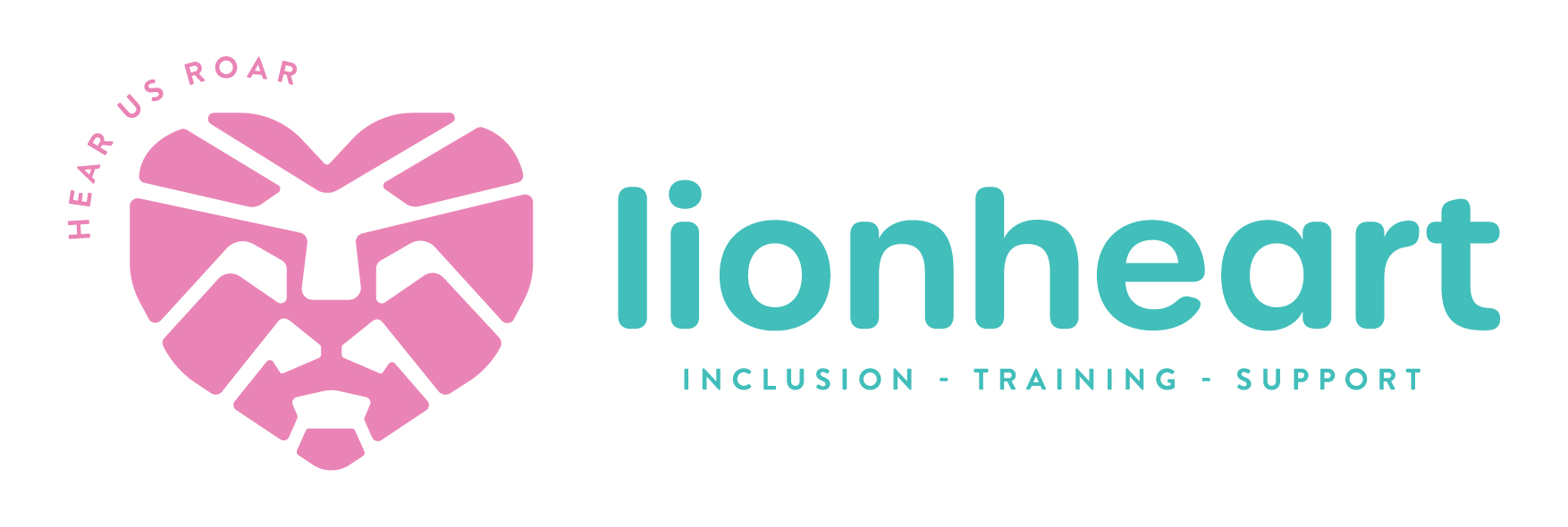Horse Power
Offered by Lionheart Support & Yandiah Farm
Experience the transformative power of animals with Horse Power, our unique Animal Assisted Learning program, designed for people of all ages and abilities. Nestled in the serene countryside of Burua, just a 25-minute drive from Gladstone, our program takes place at the beautiful Yandiah Farm.

What is Animal Assisted Learning?
Animal Assisted Learning is an innovative approach that harnesses the bond between humans and animals to enhance personal development, emotional well-being, and social skills. Our program, Horse Power, started with just horses but has grown to include other farm animals such as cows, sheep, chickens, guinea pigs, and more. This expansion allows us to tailor the experience to meet the individual needs of each participant, making it a valuable resource for those seeking to improve their confidence, communication, and overall mental health.
Who Can Benefit?
Our Animal Assisted Learning program is open to people of all ages and abilities.
Whether you’re a child needing help with social skills, an adult seeking emotional
support, or someone with a disability looking for a unique therapeutic experience, our
program can be tailored to your needs.
NDIS Participants: If the goals in your NDIS plan align with the program, it’s possible for your plan to cover the cost. We recommend talking to your support coordinator or giving us a call to find out more.
How to Get Started
To learn more about how Horse Power can benefit you or a
loved one, contact Lionheart Support today. Let us help you embark on a journey of
growth and discovery with the help of our animal friends at Yandiah Farm.
Meet Out Trainer: Maria
Sessions are conducted 1:1 with our compassionate and experienced trainer, Maria.
With a deep understanding of both animal behaviour and supporting individuals with
disability, Maria guides participants through personalised activities that promote
learning, and personal growth. Her gentle approach ensures that each session is
both engaging and supportive.
The Yandiah Experience
Yandiah Farm is home to a variety of animals including horses, cows, sheep,
chickens, guinea pigs and more. Each animal plays a special role in the learning
process, helping participants to develop skills such as empathy, responsibility, and
trust. The tranquil farm setting provides a peaceful environment where individuals
can connect with nature and the animals in a meaningful way.
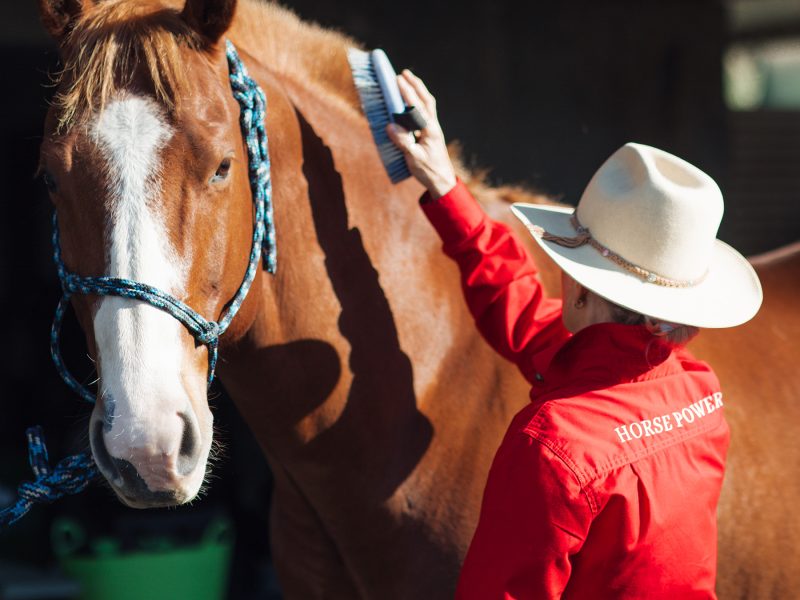

Comprehensive Session Activities
Practical Farm Skills: Participants engage in a variety of farm tasks such as setting up obstacle courses and assisting in the hay shed. These activities teach responsibility, enhance problem-solving skills, and provide a deeper understanding of daily farm operations and animal welfare.
Creative Contributions: Participants are encouraged to bring their own ideas to the table, enhancing creativity and ownership. Suggesting fun and safe obstacles for ponies, for example, allows them to contribute meaningfully to the activities.
Emotional and Social Development: Sessions focus on emotional growth and social interaction. Open discussions during tasks support emotional expression and enhance communication skills, helping participants articulate their feelings and thoughts.
Skill Development and Personal Growth
Independence and Confidence: Tasks like using a blower to clean areas or leading a pony independently showcase the development of independence and confidence. This gradual increase in responsibility reflects our supportive approach to skill development.
Patiance and Problem Solving: Facing challenges such as adjusting their approach when washing a horse or training animals fosters patience and adaptive thinking, skills crucial for real-life situations.
Joy and Satisfaction: The joy derived from successfully completing tasks, whether engaging in a favorite activity or sharing personal stories, fosters a positive and encouraging learning environment.
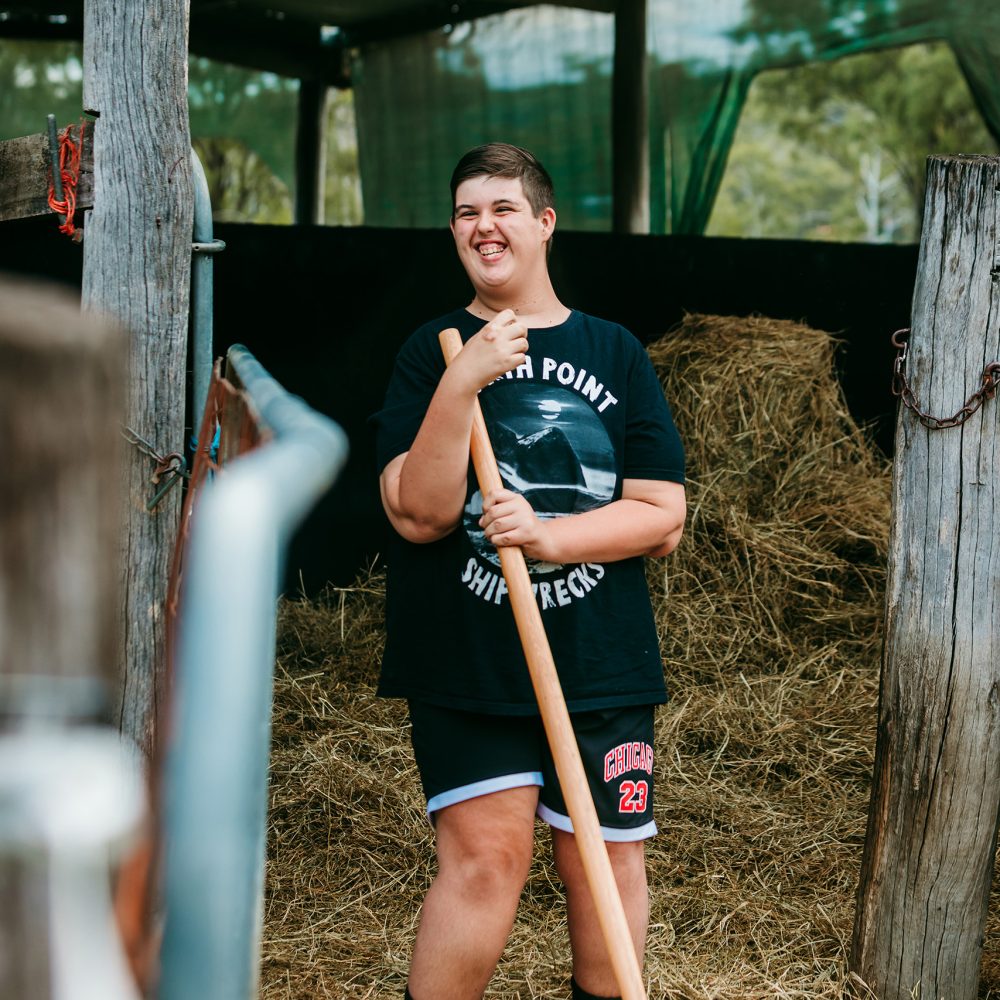
What the Research Says
A robust body of research supporting AAL highlights substantial benefits across emotional, psychological, educational, and social domains. These findings underscore the importance of these programs in enhancing personal development and well-being.
Evidence-Based Benefits of Animal Assisted Learning: Research on Animal Assisted Learning (AAL) shows that interacting with animals can significantly lower stress, evidenced by reduced cortisol levels. Additionally, these interactions boost dopamine and endorphin levels, enhancing mood and emotional well-being.
Impact of Equine Assisted Learning: Equine Assisted Learning (EAL) has been particularly noted for its effectiveness in improving mental health, with studies reporting decreased anxiety and depression. Working with horses helps develop empathy, self-esteem, and impulse control, as horses can mirror human emotions, providing real-time feedback that aids in behavioural adjustments.
Social Skills and Communication Development: Both AAL and EAL are proven to enhance social awareness, foster empathy, and improve communication skills. Engaging in non-verbal communication with animals helps participants better interpret social cues and respond more appropriately in social settings.
Educational and Developmental Gains: AAL also offers educational benefits, particularly in teaching responsibility and increasing motivation. Studies have shown improved outcomes for individuals with learning disabilities or complex behavioural needs, demonstrating AAL’s role in promoting educational achievements.
Long-Term Benefits: Longitudinal research indicates that the skills gained through AAL and EAL have enduring effects. Participants often experience sustained improvements in self-confidence, enhanced stress management abilities, and an overall better quality of life.

Frequently Asked Questions about Animal Assisted Learning (AAL)
What is AAL?
Animal Assisted Learning (AAL) is an educational program that uses interactions with animals to enhance personal development. It focuses on life skills such as problem-solving, resilience, communication, self-awareness, and independence. An innovative approach that harnesses the bond between humans and animals to enhance personal development, emotional well-being, and social skills.
What does a typical session look like?
A typical session involves a series of structured activities with animals, such as grooming, feeding, and training, followed by reflective discussions. Activities vary, incorporating tasks like setting up obstacle courses or participating in farm maintenance to provide a diverse experience.
Can this program be tailored to meet my personal needs?
Yes, the AAL program is highly adaptable. We tailor activities to meet the specific goals and needs of each participant, ensuring a personalised approach that maximises the benefits of every session.
Do the things I learn in AAL translate to my everyday life?
Absolutely. The skills learned in AAL, such as communication and problem-solving, are highly transferable. Participants often find that the confidence and resilience they develop through the program positively impact their everyday interactions and decision-making.
Who can benefit from AAL?
AAL is suitable for individuals of all ages and abilities who are looking to develop life skills, enhance their well-being, or seek a unique educational experience. It’s particularly beneficial for those who enjoy animals and outdoor activities.
Is AAL therapy?
While many participants tell us they feel therapeutic benefits such as reduced stress and improved emotional well-being, it is not therapy in the traditional sense. The program is educational, run by educators, and focuses on teaching and reinforcing life skills rather than providing personal therapy or counselling.
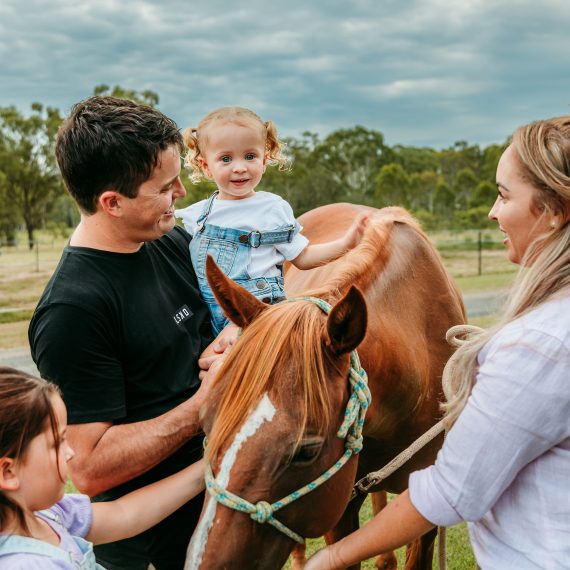
Continued Engagement and Future Plans
Each session is carefully planned to build upon previous experiences, introducing new challenges that match the participants’ growing skills and interests. Our aim is to keep participants engaged and motivated, ensuring they feel valued and encouraged to continue learning.
Join Our Community of Growth and Discovery
Lionheart Support’s Animal Assisted Learning program offers a dynamic and supportive environment for growth. Whether you’re looking to develop new skills or enjoy the benefits of working with animals, we can customise an experience as unique as you are.
Contact us today to learn more about our program and the opportunities we offer.

